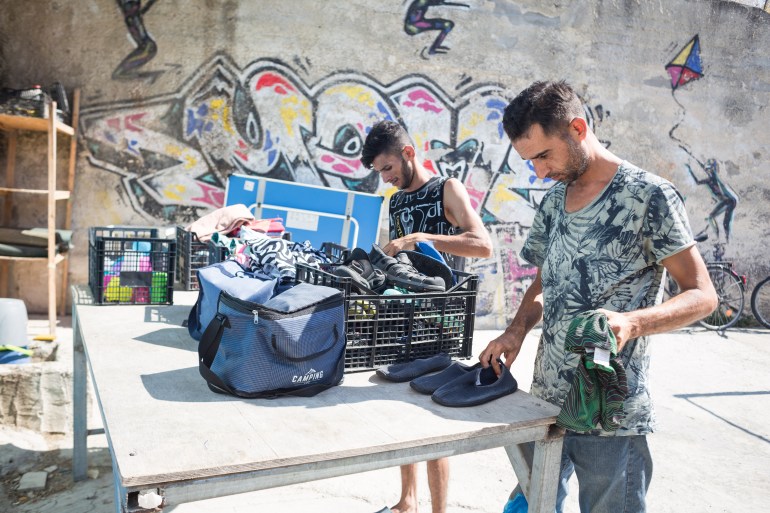On the east coast of the Greek island of Lesbos, in the shadow of an abandoned hangar and not far from the crystalline Aegean Sea, 30 people in swimming suits stand in a circle.
To the east, the small cove is bordered by a white cliff – beyond is the strait that separates Lesbos from Turkiye. To the west, a few kilometres in the distance, lies the island’s capital Mytilene and its castle. The beach is blindingly bright, drenched in the white sunshine of the July afternoon.
The group comprises trainers and students of a swimming class organised by Yoga and Sport with Refugees (YSR), an NGO that works to foster physical and mental health through sports. Many of the participants have had traumatic experiences with water, having crossed the Mediterranean in dangerous and harrowing conditions as refugees seeking asylum in Europe.
Hossein* (right) chooses shoes and a swimsuit prior to the swimming lessons [Giacomo Sini/Al Jazeera]
Several class participants wear swimming shoes, two wear fins and one person has a pair of goggles. One by one, they introduce themselves.
“I’m Salah*,” an athletic young man proclaims proudly. “I come from Syria and I can swim!”
“I’m Hossein*. I come from Iran and I cannot swim,” says a tall and thin man with his arms clenched.
“I’m Hasan*,” says another swimmer with a smile and a wave. “I’m from Afghanistan and I can swim so-so.”
The instructors guide the swimmers to the water and divide them into groups based on experience – from beginners to those who want to perfect their swimming skills. Most enter the sea but some are hesitant, remaining on the shore.
“Let’s enter slowly, no hurry,” says Salah, who is already up to his waist.
